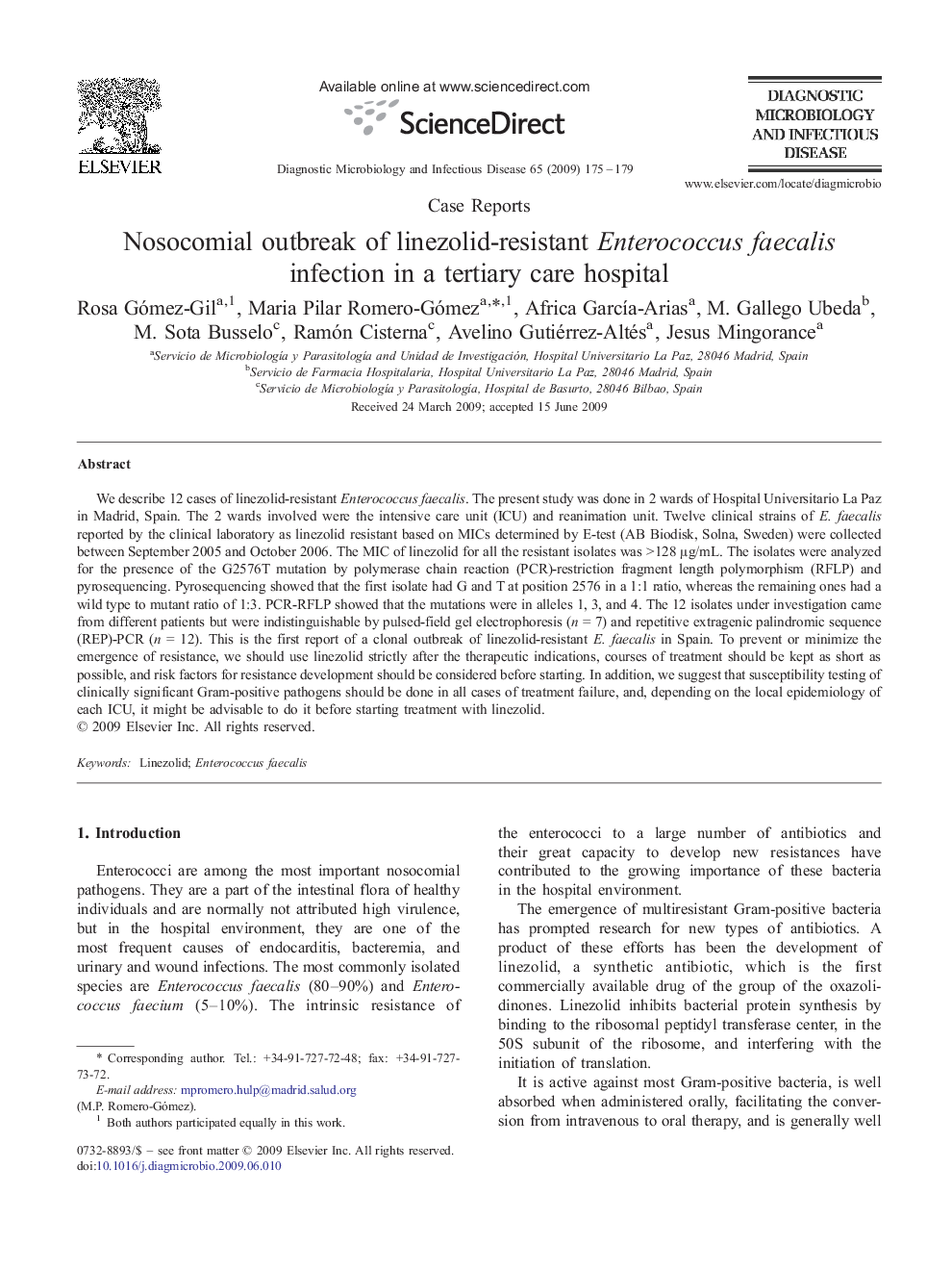| Article ID | Journal | Published Year | Pages | File Type |
|---|---|---|---|---|
| 3347774 | Diagnostic Microbiology and Infectious Disease | 2009 | 5 Pages |
We describe 12 cases of linezolid-resistant Enterococcus faecalis.The present study was done in 2 wards of Hospital Universitario La Paz in Madrid, Spain. The 2 wards involved were the intensive care unit (ICU) and reanimation unit.Twelve clinical strains of E. faecalis reported by the clinical laboratory as linezolid resistant based on MICs determined by E-test (AB Biodisk, Solna, Sweden) were collected between September 2005 and October 2006. The MIC of linezolid for all the resistant isolates was >128 μg/mL.The isolates were analyzed for the presence of the G2576T mutation by polymerase chain reaction (PCR)-restriction fragment length polymorphism (RFLP) and pyrosequencing. Pyrosequencing showed that the first isolate had G and T at position 2576 in a 1:1 ratio, whereas the remaining ones had a wild type to mutant ratio of 1:3. PCR-RFLP showed that the mutations were in alleles 1, 3, and 4. The 12 isolates under investigation came from different patients but were indistinguishable by pulsed-field gel electrophoresis (n = 7) and repetitive extragenic palindromic sequence (REP)-PCR (n = 12).This is the first report of a clonal outbreak of linezolid-resistant E. faecalis in Spain. To prevent or minimize the emergence of resistance, we should use linezolid strictly after the therapeutic indications, courses of treatment should be kept as short as possible, and risk factors for resistance development should be considered before starting. In addition, we suggest that susceptibility testing of clinically significant Gram-positive pathogens should be done in all cases of treatment failure, and, depending on the local epidemiology of each ICU, it might be advisable to do it before starting treatment with linezolid.
